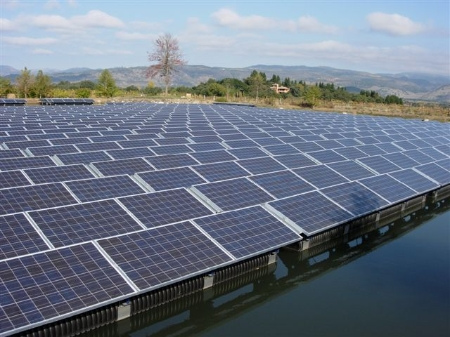In September, SECI issued a tender for 150 MW of floating solar to be developed over the Rihand Dam in the Sonbhadra district of Uttar Pradesh. In total, three 50 MW grid connected projects are set to be developed. It has extended the date of bid submissions to October 25.
To date, India has installed less than 1 MW of floating PV, but the 10 GW target indicated by SECI has set the foundation for rapid growth.
Indeed, the potential of power generation from floating solar is mind-boggling for India, as the country is endowed with many large reservoirs. The states of Uttar Pradesh, Odisha, Madhya Pradesh, Karnataka, and Andhra Pradesh alone hold 79% of the major reservoirs.
“The overall surface area of India’s major water reservoirs is more than 40 million square kilometers. Even if only one third of this (around 14 million square kilometers) was covered with floating solar installations, India could generate 700 GW of solar capacity,” according to Shekhar Dutt, Director General, Solar Power Developers Association.
Read more about India’s solar floating potential in Uma Gupta’s print article, Testing the water, published in the September edition of pv magazine.
In related news, SECI has extended the bid deadline for, and made amendments to, a 2 MW PV project coupled with 1 MW of energy storage, set to be installed in the state of Himachal Pradesh. The new deadline has also been set for October 25.
This content is protected by copyright and may not be reused. If you want to cooperate with us and would like to reuse some of our content, please contact: editors@pv-magazine.com.









1 comment
By submitting this form you agree to pv magazine using your data for the purposes of publishing your comment.
Your personal data will only be disclosed or otherwise transmitted to third parties for the purposes of spam filtering or if this is necessary for technical maintenance of the website. Any other transfer to third parties will not take place unless this is justified on the basis of applicable data protection regulations or if pv magazine is legally obliged to do so.
You may revoke this consent at any time with effect for the future, in which case your personal data will be deleted immediately. Otherwise, your data will be deleted if pv magazine has processed your request or the purpose of data storage is fulfilled.
Further information on data privacy can be found in our Data Protection Policy.